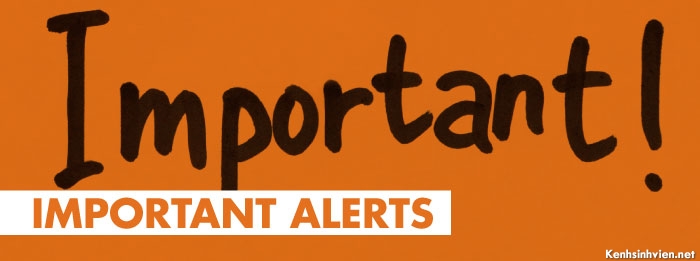- Tham gia
- 22/3/2013
- Bài viết
- 52
IELTS SPEAKING : WHY DO SOME PEOPLE LIKE X?
Cô Thùy ED sẽ tiếp tục gửi đến các bạn một số lưu ý khi trả lời các câu hỏi trong dạng : WHY DO SOME PEOPLE LIKE X? như :
- Why do some people like cooking?
- Why do some people enjoy reading?
- Why do some people like gardening?
1. CÔNG THỨC :
Khi giám khảo hỏi bạn những câu hỏi trong dạng này, bạn nên trả lời theo thứ tự :
- Miêu tả vì sao một số người lại thích điều gì đó.
- Đưa ra những loại người nào hoặc tính cách nào sẽ thích điều đó.
- Giải thích vì sao điều đó tốt cho họ hoặc vì sao họ thích chúng.
2. LANGUAGE STEPS :
· SỬ DỤNG NHỮNG TỪ ĐỂ NÓI VỀ CÁC NHÓM NGƯỜI
- Most teenagers enjoy listening to pop music.
· Sử dụng những tính từ nói về tính cách
- Creative people tend to enjoy going to theatre and art museums.
· Sủ dụng những tính từ nói về hoạt động
- Volunteering at the hospital is very rewarding.
3. NATIVE SPEAKER WORDS
· Creative : producing or using new and effective ideas, results, etc
- Working in a bank is not very creative, you just do the sames things again and again every day.
· Express oneself : to communicate what you think or feel
- I love playing the piano. Although I play the music somebody else wrote, I can express myself through the piano, so each time I play it’s different.
· Conservative: not linking changes or new ideas
- Traveling in Asia and Africa is really not suit for conservative people- only open- minded people willing to try and learn new things should go.
· From scratch : from the beginning without using things that already exist
- I don’t like working at this language school; because it’s so new, there aren’t any lesson plans or teaching materials. I have to make every lesson plan from scratch.
· Satisfying : making you feel pleased usually because you have achieved something
- Stephanie doesn’t think her job is very satisfying as she doesn’t get a chance to trying anything new and she just does whatever her boss tells her to.
· Therapeutic : making you feel relaxed or happier
- When I want to relax, I never go to bar or club – they’re always so noisy and smelly ; going to a bar is not therapeutic at all.
· Patient : describing a person who can wait or continue doing something unpleasant without complaining.
- I wish my German teacher was more patient, as soon as I make one little mistake, she gets annoyed with me and she only explains things once.
· Energetic : describing a person who has lots of energy , or an activity that requires lots of energy
- To lose weight, you should be more careful what you eat and start doing some kind of energetic activities like playing badminton or rugby.
· Unwind : to relax after being very busy , tense or worried.
- Rachel should take the time to unwind after work; being so anxious all the time can’t be good for her health.
Chúc các bạn ôn tập hiệu quả
---------
IELTS SPEAKING : WHY DO SOME PEOPLE LIKE X?
Cô Thùy ED sẽ tiếp tục gửi đến các bạn một số lưu ý khi trả lời các câu hỏi trong dạng : WHY DO SOME PEOPLE LIKE X? như :
- Why do some people like cooking?
- Why do some people enjoy reading?
- Why do some people like gardening?
1. CÔNG THỨC :
Khi giám khảo hỏi bạn những câu hỏi trong dạng này, bạn nên trả lời theo thứ tự :
- Miêu tả vì sao một số người lại thích điều gì đó.
- Đưa ra những loại người nào hoặc tính cách nào sẽ thích điều đó.
- Giải thích vì sao điều đó tốt cho họ hoặc vì sao họ thích chúng.
2. LANGUAGE STEPS :
· SỬ DỤNG NHỮNG TỪ ĐỂ NÓI VỀ CÁC NHÓM NGƯỜI
- Most teenagers enjoy listening to pop music.
· Sử dụng những tính từ nói về tính cách
- Creative people tend to enjoy going to theatre and art museums.
· Sủ dụng những tính từ nói về hoạt động
- Volunteering at the hospital is very rewarding.
3. NATIVE SPEAKER WORDS
· Creative : producing or using new and effective ideas, results, etc
- Working in a bank is not very creative, you just do the sames things again and again every day.
· Express oneself : to communicate what you think or feel
- I love playing the piano. Although I play the music somebody else wrote, I can express myself through the piano, so each time I play it’s different.
· Conservative: not linking changes or new ideas
- Traveling in Asia and Africa is really not suit for conservative people- only open- minded people willing to try and learn new things should go.
· From scratch : from the beginning without using things that already exist
- I don’t like working at this language school; because it’s so new, there aren’t any lesson plans or teaching materials. I have to make every lesson plan from scratch.
· Satisfying : making you feel pleased usually because you have achieved something
- Stephanie doesn’t think her job is very satisfying as she doesn’t get a chance to trying anything new and she just does whatever her boss tells her to.
· Therapeutic : making you feel relaxed or happier
- When I want to relax, I never go to bar or club – they’re always so noisy and smelly ; going to a bar is not therapeutic at all.
· Patient : describing a person who can wait or continue doing something unpleasant without complaining.
- I wish my German teacher was more patient, as soon as I make one little mistake, she gets annoyed with me and she only explains things once.
· Energetic : describing a person who has lots of energy , or an activity that requires lots of energy
- To lose weight, you should be more careful what you eat and start doing some kind of energetic activities like playing badminton or rugby.
· Unwind : to relax after being very busy , tense or worried.
- Rachel should take the time to unwind after work; being so anxious all the time can’t be good for her health.
Chúc các bạn ôn tập hiệu quả
Cô Thùy ED sẽ tiếp tục gửi đến các bạn một số lưu ý khi trả lời các câu hỏi trong dạng : WHY DO SOME PEOPLE LIKE X? như :
- Why do some people like cooking?
- Why do some people enjoy reading?
- Why do some people like gardening?
1. CÔNG THỨC :
Khi giám khảo hỏi bạn những câu hỏi trong dạng này, bạn nên trả lời theo thứ tự :
- Miêu tả vì sao một số người lại thích điều gì đó.
- Đưa ra những loại người nào hoặc tính cách nào sẽ thích điều đó.
- Giải thích vì sao điều đó tốt cho họ hoặc vì sao họ thích chúng.
2. LANGUAGE STEPS :
· SỬ DỤNG NHỮNG TỪ ĐỂ NÓI VỀ CÁC NHÓM NGƯỜI
- Most teenagers enjoy listening to pop music.
· Sử dụng những tính từ nói về tính cách
- Creative people tend to enjoy going to theatre and art museums.
· Sủ dụng những tính từ nói về hoạt động
- Volunteering at the hospital is very rewarding.
3. NATIVE SPEAKER WORDS
· Creative : producing or using new and effective ideas, results, etc
- Working in a bank is not very creative, you just do the sames things again and again every day.
· Express oneself : to communicate what you think or feel
- I love playing the piano. Although I play the music somebody else wrote, I can express myself through the piano, so each time I play it’s different.
· Conservative: not linking changes or new ideas
- Traveling in Asia and Africa is really not suit for conservative people- only open- minded people willing to try and learn new things should go.
· From scratch : from the beginning without using things that already exist
- I don’t like working at this language school; because it’s so new, there aren’t any lesson plans or teaching materials. I have to make every lesson plan from scratch.
· Satisfying : making you feel pleased usually because you have achieved something
- Stephanie doesn’t think her job is very satisfying as she doesn’t get a chance to trying anything new and she just does whatever her boss tells her to.
· Therapeutic : making you feel relaxed or happier
- When I want to relax, I never go to bar or club – they’re always so noisy and smelly ; going to a bar is not therapeutic at all.
· Patient : describing a person who can wait or continue doing something unpleasant without complaining.
- I wish my German teacher was more patient, as soon as I make one little mistake, she gets annoyed with me and she only explains things once.
· Energetic : describing a person who has lots of energy , or an activity that requires lots of energy
- To lose weight, you should be more careful what you eat and start doing some kind of energetic activities like playing badminton or rugby.
· Unwind : to relax after being very busy , tense or worried.
- Rachel should take the time to unwind after work; being so anxious all the time can’t be good for her health.
Chúc các bạn ôn tập hiệu quả
---------
IELTS SPEAKING : WHY DO SOME PEOPLE LIKE X?
Cô Thùy ED sẽ tiếp tục gửi đến các bạn một số lưu ý khi trả lời các câu hỏi trong dạng : WHY DO SOME PEOPLE LIKE X? như :
- Why do some people like cooking?
- Why do some people enjoy reading?
- Why do some people like gardening?
1. CÔNG THỨC :
Khi giám khảo hỏi bạn những câu hỏi trong dạng này, bạn nên trả lời theo thứ tự :
- Miêu tả vì sao một số người lại thích điều gì đó.
- Đưa ra những loại người nào hoặc tính cách nào sẽ thích điều đó.
- Giải thích vì sao điều đó tốt cho họ hoặc vì sao họ thích chúng.
2. LANGUAGE STEPS :
· SỬ DỤNG NHỮNG TỪ ĐỂ NÓI VỀ CÁC NHÓM NGƯỜI
- Most teenagers enjoy listening to pop music.
· Sử dụng những tính từ nói về tính cách
- Creative people tend to enjoy going to theatre and art museums.
· Sủ dụng những tính từ nói về hoạt động
- Volunteering at the hospital is very rewarding.
3. NATIVE SPEAKER WORDS
· Creative : producing or using new and effective ideas, results, etc
- Working in a bank is not very creative, you just do the sames things again and again every day.
· Express oneself : to communicate what you think or feel
- I love playing the piano. Although I play the music somebody else wrote, I can express myself through the piano, so each time I play it’s different.
· Conservative: not linking changes or new ideas
- Traveling in Asia and Africa is really not suit for conservative people- only open- minded people willing to try and learn new things should go.
· From scratch : from the beginning without using things that already exist
- I don’t like working at this language school; because it’s so new, there aren’t any lesson plans or teaching materials. I have to make every lesson plan from scratch.
· Satisfying : making you feel pleased usually because you have achieved something
- Stephanie doesn’t think her job is very satisfying as she doesn’t get a chance to trying anything new and she just does whatever her boss tells her to.
· Therapeutic : making you feel relaxed or happier
- When I want to relax, I never go to bar or club – they’re always so noisy and smelly ; going to a bar is not therapeutic at all.
· Patient : describing a person who can wait or continue doing something unpleasant without complaining.
- I wish my German teacher was more patient, as soon as I make one little mistake, she gets annoyed with me and she only explains things once.
· Energetic : describing a person who has lots of energy , or an activity that requires lots of energy
- To lose weight, you should be more careful what you eat and start doing some kind of energetic activities like playing badminton or rugby.
· Unwind : to relax after being very busy , tense or worried.
- Rachel should take the time to unwind after work; being so anxious all the time can’t be good for her health.
Chúc các bạn ôn tập hiệu quả










